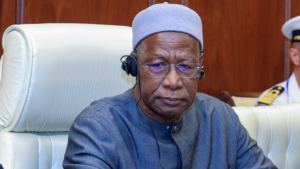Turkey’s energy deal, manifested in reviving the terms of the 2019 maritime MoU that was signed with the previous Government of National Accord (GNA) and signing a hydrocarbons’ MoU with the Government of National Unity (GNU), is ratcheting up the dangers of a new dispute between Ankara and Cairo.
In addition to the Turkish-Libyan energy deal, Cairo is upset with the fact that its ally-loyal government of Fathi Bashagha – an ally to the eastern camp represented by Khalifa Haftar and the House of Representatives (HoR), especially the HoR Speaker, Aqila Saleh – hasn’t been able to take power in Tripoli and replace Abdul Hamid Dbeibah’s GNU.
The HoR withdrew confidence in Dbeibah and his government last February after the latter had failed to lead Libya to elections, tapping in Bashagha as new Prime Minister after he had struck a new alliance with Haftar and Saleh.
Egypt’s Provocations
In September, the Egyptian delegation headed by Foreign Minister, Sameh Shoukry, left the Arab League ministerial meeting in Cairo after the Libyan Foreign Minister, Najla Al-Mangoush, had taken the chair as president of the meeting.
Sources said Shoukry had rejected at the time the assumption of chair by Libya’s FM of the GNU and walked out of the meeting after he asked Al-Mangoush to give up presidency of the Arab League’s 158th meeting but she didn’t accept.
The spokesman for the Egyptian Foreign Minister, Ahmad Hafiz, said Cairo’s delegation left the Arab League meeting when Libya’s Foreign Minister of the GNU Al-Mangoush chaired the meeting to express reservations about the assumption of presidency by a representative of an expired government.
Egypt has since then reiterated more than once that the GNU is an expired government and an illegitimate body, urging the international community and the region to deal with Bashagha’s government as the only legitimate representative of the state and the people of Libya.
Teaming up with Greece
After the signing of hydrocarbons’ MoUs between Libya and Turkey, Egypt had retriggered its bias to Greece regarding the territorial waters in the Aegean Sea.
The Egyptian Foreign Minister Sameh Shoukry and the Greek counterpart Nikos Dendias rejected in a joint press conference in Cairo the maritime and energy MoUs signed by Libya and Turkey.
Shoukry asked the UN Secretary General to take a stance on the “illegitimacy of the Government of National Unity in Libya” as it was appointed following a UN-brokered agreement, saying the UN shouldn’t be a silent spectator of what it has brokered, referring to the GNU in Libya, which came into office after a UN-led Libyan Political Dialogue Forum in 2021.
The Egyptian Foreign Minister also added that the international community should fulfill the calls for legitimacy in Libya as per the Security Council’s resolutions, saying that the GNU in Tripoli “isn’t mandated to sign international agreements or MoUs.”
The Greek Foreign Minister said that the GNU’s mandate had expired and was not a representative of the Libyan people any longer, adding that the GNU couldn’t sign international agreements and that Egypt and Greece were working to restore stability to Libya and make the Mediterranean a stable region.
Cairo Halts Talks with Ankara
The Egyptian Foreign Minister Sameh Shoukry said dialogue meetings with Turkey stopped after two sessions because Ankara’s practices in Libya didn’t change.
Shoukry told Al-Arabiya TV Channel that Libyan parties should respect Skhirat agreement, signed in December 2015, and called on the UN and stakeholders to deal with the legitimate government in Libya, referring to Fathi Bashagha’s government.
Two rounds of talks were held between Cairo and Ankara at the level of deputy foreign ministers in Egypt and Turkey to discuss the necessary steps to normalize relations at the bilateral level and in the regional context.
However, those meetings have not yet resulted in the exchange of diplomatic representation between the two sides. They both are still at the charge d’affaires’ level.
Libya: A Stalemate in Effect
The situation in Libya is on tenterhooks. East-west rivalries are coming to the fore once again due to vying for legitimacy between the GNU of Dbeibah and the Libyan government of Bashagha, with clandestine efforts in the lobbies to create a third government that is somehow consensual to the two rival camps.





